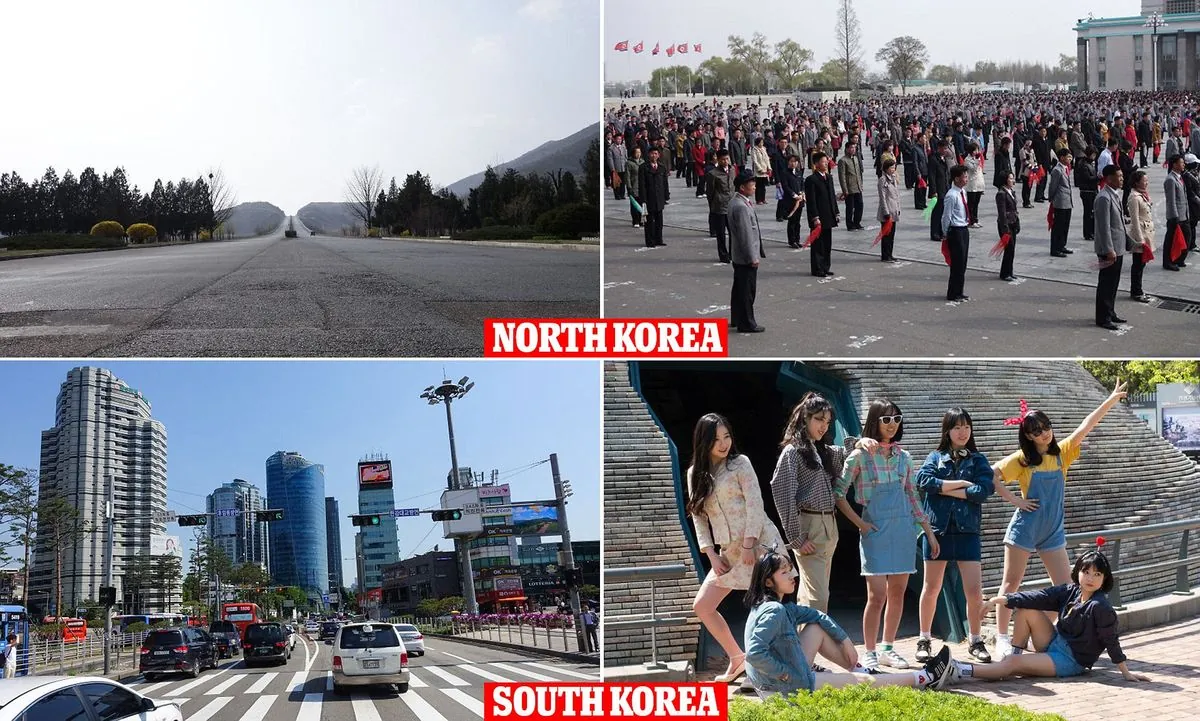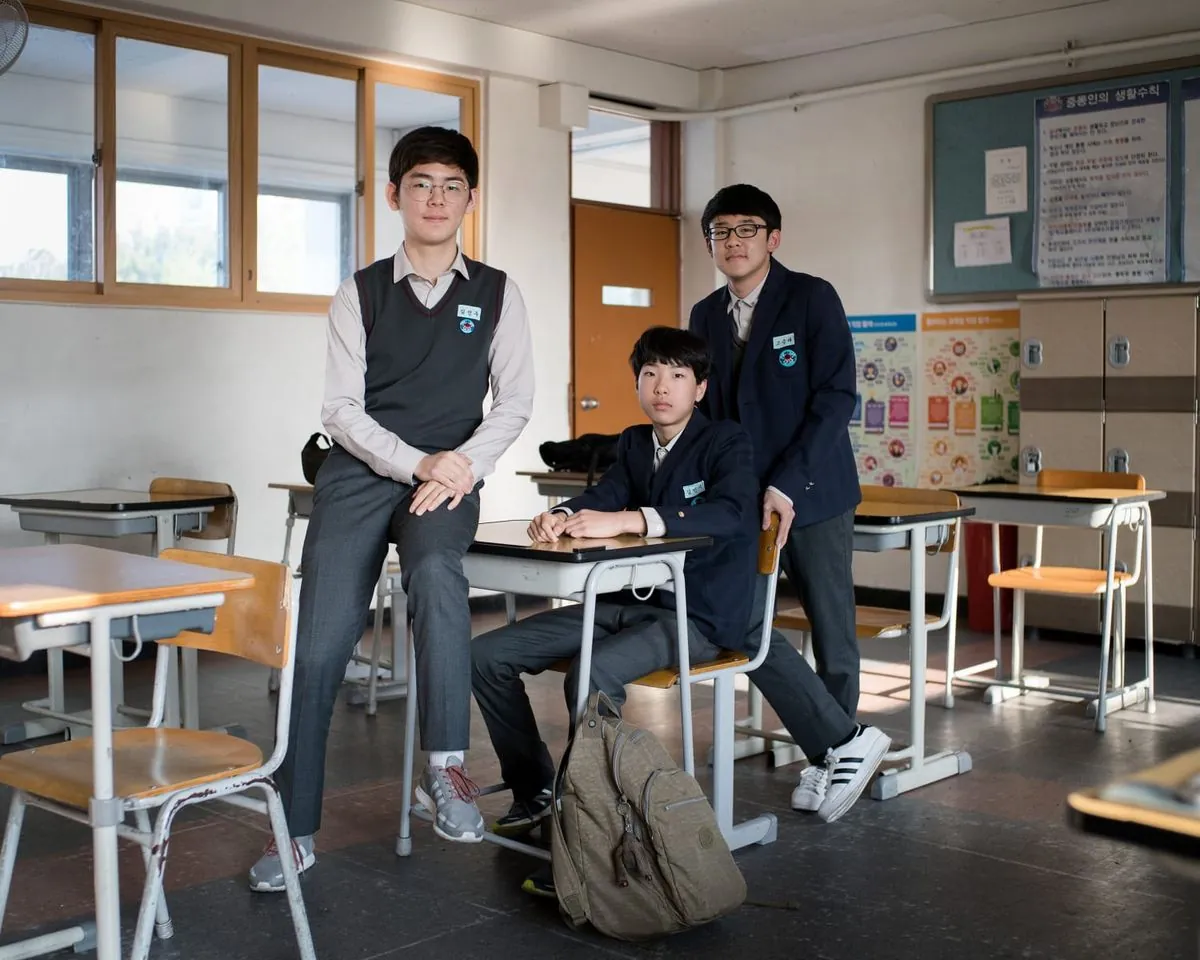South Koreans Divided on North Korean Threat: Fear vs. Indifference
South Koreans hold contrasting views on the danger posed by North Korea, ranging from deep concern to indifference. Age, politics, and personal experiences shape these diverse perspectives.

In South Korea, a nation technically still at war, citizens hold starkly contrasting views on the threat posed by their northern neighbor. This division in sentiment has persisted through decades of tumultuous history, from war and dictatorship to economic transformation.
Kim Jaehyun, a 22-year-old law student, exemplifies those who take the threat seriously. He stockpiles military gear and attends security seminars, believing that Kim Jong Un might use nuclear weapons without warning. Similarly, Shin Nari, a 34-year-old graduate student, rates her concern about nuclear war at 8 out of 10 and maintains a small emergency food supply.

Conversely, many South Koreans have become desensitized to the constant tension. The Rev. Chung Joon-hee of Youngnak Presbyterian Church in Seoul likens this indifference to fish unaware of the water they swim in. This sentiment is echoed by Kim Jong Soo, a 56-year-old office worker, who admits to paying more attention to daily life than North Korean provocations.
"Oh, they did it again. We pay more attention to our daily lives."
The Korean Peninsula's division dates back to 1945, with the Korean War erupting in 1950. Despite the 1953 armistice, the two nations remain technically at war. North Korea's nuclear program, initiated in earnest during the 1990s, has been a source of international concern for decades.
Experts estimate that North Korea may possess up to 60 nuclear warheads. While some believe Kim Jong Un would not risk war due to the overwhelming U.S.-South Korean military alliance, others are less certain. In early 2024, two experts argued that Kim had made a strategic decision to go to war, creating a situation more dangerous than any time since June 1950.
Public opinion on the nuclear threat varies. A 2023 survey by the Korea Institute for National Unification found that 45% of South Koreans worried about North Korea's nuclear program, while 30% did not. Concerns often spike following major provocations, such as North Korea's satellite launch in November 2023.
The U.S.-South Korea alliance plays a crucial role in South Korean perceptions of security. However, growing doubts about U.S. commitment have led to increased support for South Korea developing its own nuclear weapons.
Some South Koreans, like 73-year-old Jung Myungja, are taking precautions. Following recent events, Jung invested in a private bunker beneath her home, capable of sheltering her family for up to two weeks in case of a nuclear attack.
As South Korea continues to navigate its complex relationship with the North, its citizens remain divided in their perceptions of the threat. This split reflects the nation's ongoing struggle to reconcile its tumultuous past with an uncertain future, all while living under the shadow of a nuclear-armed neighbor.


































